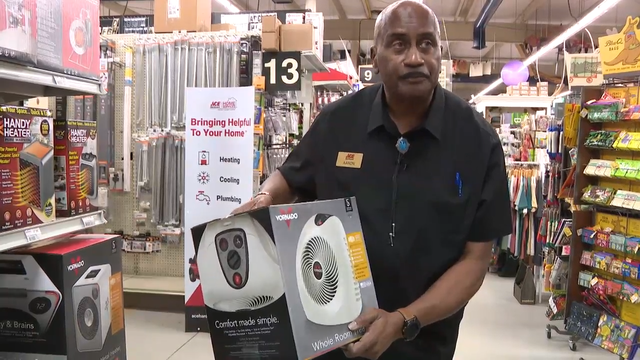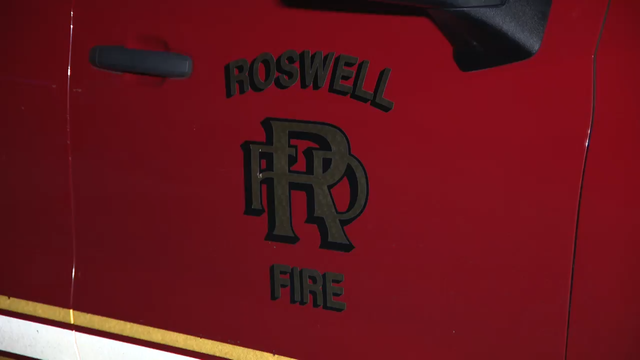Cold weather safety: Experts warn of common space heater mistakes that can turn deadly
With temperatures falling across north Georgia, hardware stores are getting busy. For longtime hardware expert Aaron Lester, it's a familiar sight.
"Thirty years in the hardware business," Lester said. "So when folks hear the temperature's dropping, they come rushing in — and I make sure they leave with a lesson on what to do and what not to do."
Lester, who manages Intown Ace Hardware, says modern space heaters are much safer than older models but only if they're used properly.
"It has the anti-tip feature whereby if it tips over, you don't have to worry about your child or pet being harmed," he explained. "The newer heaters automatically shut off when they fall over — in most cases."
Keep it 3 ft away
Lester advises keeping all space heaters at least three feet away from anything that can burn, including curtains, bedding, or furniture.
And one thing he's firm about — no propane indoors.
"Anything you would have to attach a propane tank, I would not advise it," he said.
Outside the store, Lester points to a patio-style heater designed only for outdoor use.
"This is exclusively designed for outside use," he said. "That's because the way it's powered — it's propane-powered."
Fire Marshal's warning
Roswell Fire Marshal Battalion Chief Chris Archer says propane-fueled heaters aren't the only danger he sees when the temperature drops.
"We've seen kerosene heaters and propane heaters inside, even generators running in garages," Archer said. "That releases carbon monoxide back into the house."
According to Roswell Fire, space heaters are one of the leading causes of home fires during winter months. The department urges homeowners to check cords for damage, avoid using extension cords, and plug heaters directly into wall outlets.
The silent killer
Back at the hardware store, Lester is just as concerned about what you can't see — carbon monoxide.
"Carbon monoxide is a silent killer," he said. "It can come from faulty hot water tanks, central heat units, or gas appliances."
He recommends every home have a carbon monoxide alarm and working smoke detectors in every room. Batteries should be changed twice a year.
And with Thanksgiving around the corner, Lester says to be ready in case of a kitchen fire.
"These fire blankets are easier to use than a fire extinguisher," he said. "Everyone should have one handy."
Bottom line
Before you turn up the heat this winter, make sure your equipment is safe and that your detectors are working.
As fire officials remind, a few simple precautions can save lives.


